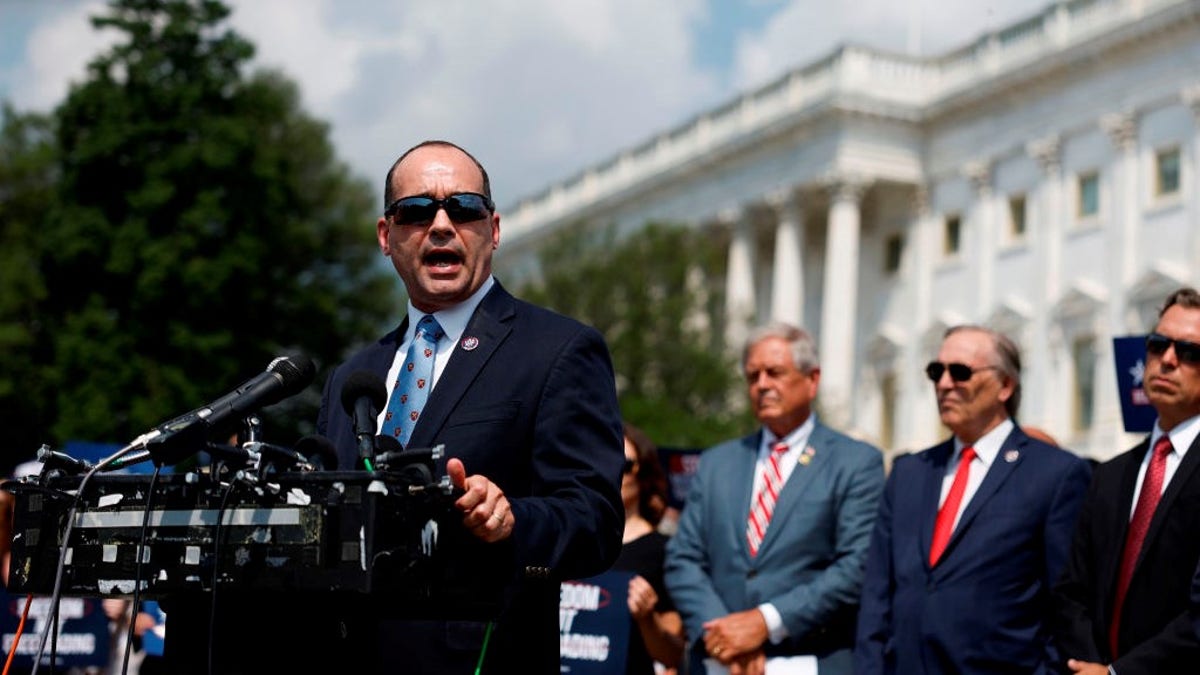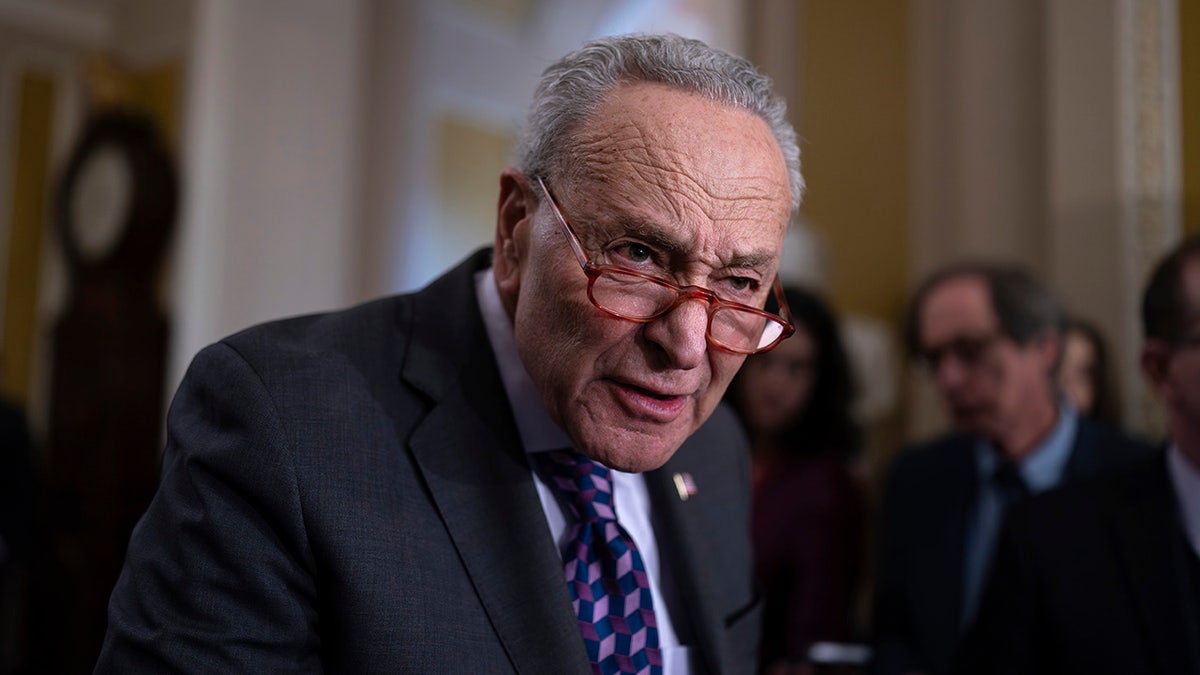Monica Crowley on government spending: ‘We are paying to fund our own destruction’
Podcast host Monica Crowley expresses her concern over government spending after a Senate report detailed roughly $900 billion in wasted funds.
The House Freedom Caucus is accusing Democrats of trying to blow past already agreed upon spending levels to fund the government next year and is urging Republican leadership not to follow suit.
In a statement sent to Fox News Digital just before the New Year, the ultra-conservative group pointed out that the U.S. national debt is "rapidly approaching" $34 trillion. That is more than $100,000 per American, according to the national debt clock.
"Unfortunately, members of the House and Senate have done little to force a course correction from this calamity. Indeed, many have been party to it," the group said.
"Worse yet, we are extremely troubled that House Republican leadership is considering an agreement with Democrats to spend even higher than the modest $1.59 trillion statutory cap set six months ago by the Fiscal Responsibility Act, and to obscure the actual spending numbers with more shady side deals and accounting tricks. This is totally unacceptable."
SENATE HAS ONLY PASSED 3 OUT OF 12 SPENDING BILLS AS DEADLINE LOOMS

Rep. Bob Good, R-Va., the incoming chairman of the House Freedom Caucus, speaks at a news conference outside the U.S. Capitol Building on July 25, 2023, in Washington, D.C.
The bipartisan Fiscal Responsibility Act (FRA), borne from negotiations to raise the debt limit led by President Biden and former Speaker Kevin McCarthy, R-Calif., would set next year’s funding levels at a topline of $1.59 trillion.
However, Congress is able to approve additional funding if it’s deemed an "emergency." A handshake agreement made at the time would also allow for roughly $69 billion in additional non-defense spending.
WHERE NO CONGRESS HAS GONE BEFORE: FACING GALACTIC-SCALE FISCAL CLIFF AND BORDER SECURITY THREATS
Speaker Mike Johnson, R-La., signaled earlier this month that he is opposed to deals exceeding the $1.59 trillion cap in the FRA.
"What we also agreed to was what's written in the law, and that's the [FRA] topline. The Senate has been projecting and writing well above that to, I don't know, billions of dollars. That's not what the law says," Johnson said at a December 12 press conference.

Speaker of the House Mike Johnson, R-La., has signaled he does not want to go above the $1.59 billion figure set by the FRA. (Tom Williams/CQ-Roll Call, Inc via Getty Images)
"I came in as the new speaker and I said, again, as the rule of law team, we're going to follow the law. So that's where negotiations stand."
But the details are still up in the air right now, with the House having left for the holidays on December 15 without publicly revealing a commitment to a specific topline number.
"As Congress negotiates FY 2024 government funding, Republicans must truly reduce programmatic spending year-over-year from the enacted FY 2023 level, and end the use of disingenuous gimmicks to conceal from Americans the real spending harm being perpetrated by their elected representatives," the Freedom Caucus said on Friday.
HOUSE LEAVES FOR THE YEAR WITH CRITICAL BATTLES STILL ON HORIZON
"Anything less represents more failure and suffering for the American people. Republicans promised millions of voters that we would fight to change the status quo, and it is long past time to deliver."

Senate Majority Leader Chuck Schumer, D-N.Y., has pushed for additional spending. (AP Photo/J. Scott Applewhite)
CLICK HERE TO GET THE FOX NEWS APP
Under a short-term plan enacted by Johnson to buy lawmakers more time to negotiate, current government funding levels expire under two separate deadlines – January 17 for some agencies and February 2 for others.
The GOP-controlled House and Democrat-held Senate will have to strike a deal for fiscal year 2024 or at least another short-term extension by then, or they will risk plunging the government into a partial shutdown.











































